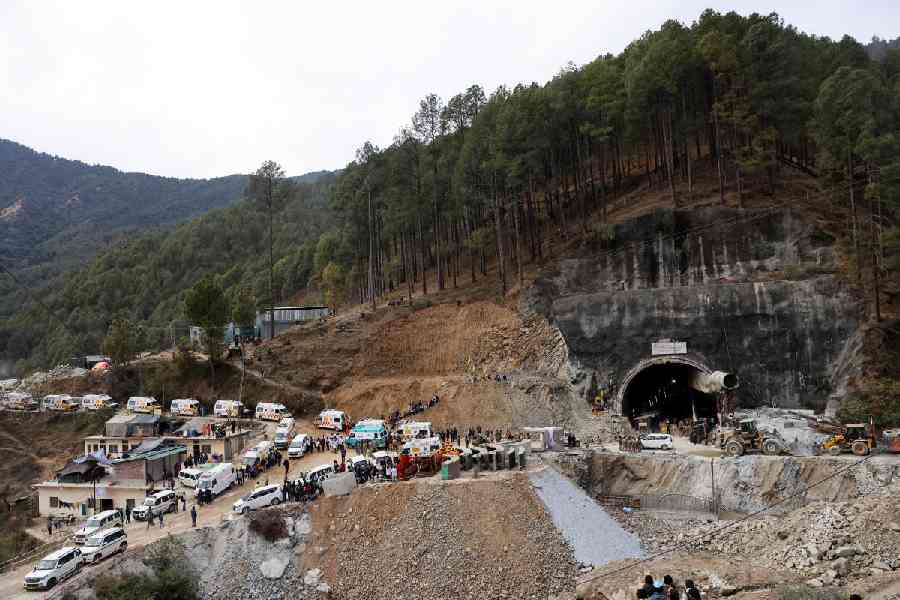The 41 Indian construction workers trapped in a collapsed highway tunnel for 17 days will need long-term support after their rescue, including monitoring for post-traumatic stress disorder, officials said on Tuesday.
Rescuers drilled through rocks and debris to finally reach the men on Tuesday in the Himalayan tunnel where they have been trapped since it collapsed on Nov. 12. They were due to be pulled out, one by one, later in the day.
The men have been getting food, water, light, oxygen and medicine through a narrow pipe but efforts to dig a tunnel to rescue them with high-powered drilling machines were frustrated by endless snags and equipment breakdowns.
Ambulances were waiting at the mouth of the tunnel on Tuesday afternoon to take the men to hospital and R.C.S. Panwar, the top medical officer in Uttarkashi district where the tunnel is located, said they would all be given a thorough checkup and follow-up monitoring by specialists.
For some, the mental impact of their ordeal could last for many months, said Dr Dinakaran D. of the state-run National Institute of Mental Health and Neurosciences.
"There is a risk of PTSD in these individuals," Dinakaran said.
"All 41 would experience some post traumatic symptoms like insomnia, recurrent bad dreams, recurrent reliving of the tunnel collapse, anxiety," he said. "Not everyone will have the disorder but most will suffer from these symptoms for say three to six months."
The men have been in constant touch with rescuers through wireless devices and had two kilometres of space within the tunnel to walk around in, wash and rest. They were also sent anti-depressants through the small pipe.
While they waited day after day to be rescued, the men were encouraged to talk to each other, tell stories, do yoga, light exercise and play board games sent in to them.
But Dinakaran said they would have to be checked at regular intervals for at least a year.










